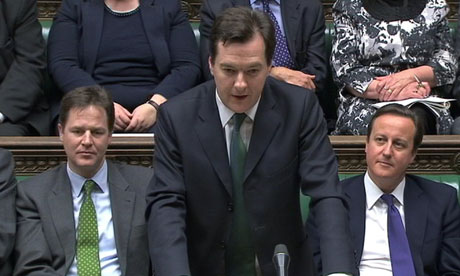歐
洲再度顯露出“傳染病”跡象﹐投資者將目光從愛爾蘭債務危機中移開﹐投向了葡萄牙和西班牙。
西班牙和葡萄牙的債券價格週二雙雙大幅下跌﹐德國國債的收益率升至紀錄高位。歐元兩個月來首次跌至1.34美元下方﹐儘管歐元走軟的部分原因是因為在朝鮮炮襲韓國後﹐投資者轉向具有避險功能的美元。

Associated Press
德國總理默克爾(Angela Merkel)
外匯分析(Foreign Exchange Analytics)的策略師吉爾莫(David Gilmore)說﹐那些押注危機將蔓延開來的人這次也許猜對了。他說﹐真的沒有什麼可以阻止市場推倒下一塊多米諾骨牌。
對歐洲的擔憂加上朝韓局勢的影響也蔓延到美國市場。道瓊斯指數大跌142.21點﹐至11036.37點﹐跌幅1.3%。
通常被視作安全投資的美國國債的價格大幅走高。
德國總理默克爾(Angela Merkel)說愛爾蘭的危機讓人對歐洲十分擔心﹐這凸顯出人們對歐洲金融市場的憂慮。
歐洲的風雲突變令許多交易員措手不及。
近幾週來關注焦點一直落在美聯儲(Federal Reserve)的寬鬆舉措所帶來的影響上。在上週快要結束時﹐許多投資者曾以為愛爾蘭的問題正逐步得到解決。可隨著愛爾蘭聯合政府週一申請救助﹐危機將會蔓延的看法又重新佔據了投資者的思想。
在愛爾蘭向歐盟(European Union)和國際貨幣基金組織(IMF)提出救助申請之前﹐愛爾蘭政府已注資提振那些遭受巨額貸款損失的銀行。這將公眾焦點轉向了西班牙和葡萄牙的銀行。
與此同時葡萄牙週一說﹐其十個月預算赤字較上年同期增加。週二﹐西班牙以大大高於一個月前的價格發行了一筆短期債券。
Knight Capital的固定收益策略師耶爾文頓(Brian Yelvington)說﹐我認為這是市場的體現﹔這些是系統性問題﹐需要有一種系統的解決方案。他說﹐這不是哪一個單獨國家的一次性問題。
不斷增強的蔓延勢頭打擊了一個又一個國家﹐從希臘蔓延至愛爾蘭﹐如今又影響到葡萄牙和西班牙。
人們擔心這種不斷升高的借款成本最終可能會超出承受範圍﹐迫使一些國家尋求某種救助。
傳染性在廣義上被定義為一個國家市場信心的喪失傳導至其他國家﹐這種傳染性可以通過貿易往來、經濟上的相似性或是金融聯繫來實現。一個國家的經濟下滑將打擊其貿易伙伴的出口﹐並減少旅遊收入。
一國若出現金融資產價值暴跌﹐而其它國家的銀行又持有這些金融資產﹐則會影響人們對這些銀行的信心。
危機擴散的第二個傳染源是投資者放眼望去﹐發現其它經濟體也存在跟陷入困境的經濟體類似的問題。
雖然葡萄牙銀行危機的規模沒有愛爾蘭那麼大﹐其預算赤字也不如希臘那麼嚴重﹐但它確實處於預算赤字、高額政府債務以及低經濟增長三重困境之中﹐一些投資者為此感到焦慮。
危機擴散的第三個傳導機制是投資者的投資組合﹐因為只要其中一個資產級別價格下跌就會導致一些投資者拋售其它資產。
這 裡應特別引起關注的是西班牙。加拿大皇家銀行資本市場(RBC Capital Markets)數據顯示﹐週二德國國債和西班牙國債收益率之差一夜之間就升至2.36個百分點﹐創1999年引入歐元以來的最高紀錄﹐上升了0.30個 百分點﹐遠遠高出今年5月創下的2.21個百分點紀錄。
投資者拋售西班牙國債應引起注意﹐因為雖然希臘、葡萄牙和愛爾蘭正面臨重大的財政和經濟困難﹐但這些經濟體相對較小﹐人們認為即使對這三個國家進行集體救助也還是應付得了的。
但如果西班牙掉入一個“死亡漩渦”﹐其國債的利息支付不斷上漲﹐直到高得西班牙無法再借到錢的時候﹐市場中很多投資者就會認為施救西班牙不切實際﹐更有可能的做法是要求債務重組﹐此舉將為西班牙國債持有者帶來損失﹐而歐洲諸多銀行恰好持有了很多西班牙國債。
交易者說﹐這些銀行既可能是那些週二拋售西班牙、葡萄牙甚或意大利國債的銀行﹐也有可能是購買這些國家債券違約保險作為對沖手段的銀行。
對對沖基金和其它基金經理人來說﹐他們希望弄明白如何在動盪的時局中以最佳方式進行交易﹐但有幾個因素讓他們的想法複雜化。
很多投資者說﹐他們對於是否要通過信用違約掉期市場進行較大的投機猶豫不決﹐因為關於葡萄牙和西班牙的違約掉期交易相對較少﹐因此買賣變得更加困難。信用違約掉期的作用跟保險類似﹐是在萬一發生債券違約的情況下對債券持有人的一種保護。
對沖基金還有一種擔憂﹐即各國政府可能會很快改變主權債務信用違約掉期的交易規則﹐就好像在2008年經濟危機期間政府改變金融股的交易規則一樣。
相反﹐有些經理人堅信愛爾蘭和葡萄牙等國某些債券價格會下跌﹐因此對交易這些國家金融機構的債務表示期待。
隨著美國聯邦儲備委員會(Federal Reserve)不斷向金融體系注入資金﹐此時押注歐元也變得更為困難。
其實﹐很多交易者並不認為歐元會走跌。相反﹐他們在最近歐洲金融危機爆發之前一直看漲歐元﹐並持有美元的空頭頭寸和歐元。
Tom Lauricella, Stephen Fidler and Mark Gongloff
source
Fears Of Domino Effect Pervade Europe
Contagion once again emerged in Europe as investors turned from Ireland's debt crisis and set their sights on Portugal and Spain.
Both Spanish and Portuguese bond prices fell sharply Tuesday, and the yields above German bunds rose to records. The euro slid below $1.34 for the first time in two months, though part of the weakness came as investors turned to the safe-haven status of the U.S. dollar after North Korean artillery attacks on South Korea.
'People that are betting on contagion are probably making the right bet here,' said David Gilmore, a strategist at Foreign Exchange Analytics. 'There's not really anything to stop the markets from pushing the next domino over.'
The unease over Europe, combined with the events in Korea, spread to U.S. markets as well. The Dow Jones Industrial Average slumped 142.21 points, or 1.3%, to 11036.37.
Prices of Treasurys, typically seen as a haven investment, jumped.
Highlighting the concerns about European financial markets, German Chancellor Angela Merkel called Ireland's crisis 'very worrying' for the region.
The sudden turn in Europe has caught many traders off guard.
The focus in recent weeks has been on the impact of the Federal Reserve's easing measures. And at the tail end of last week, many investors had assumed the Irish situation was on its way to being resolved. But with the unraveling of Ireland's coalition government Monday, contagion is back on the minds of investors.
Ireland's request for a bailout from the European Union and the International Monetary Fund followed government capital injections to prop up banks that suffered big loan losses. This has turned the spotlight to banks in Spain and Portugal.
Meanwhile, Portugal reported on Monday that its 10-month budget deficit widened from a year ago. Tuesday, Spain issued short-term debt at a significantly higher cost than a month ago.
'I think that's the market's realization; that these are systemic problems that are going to need a systemic solution,' said Brian Yelvington, fixed-income strategist at Knight Capital. 'This is not a one-off problem with an individual country.'
Rising spreads have hit one country after the other, moving from Greece to Ireland and now to Portugal and Spain.
The worry is that those rising borrowing costs eventually may prove prohibitive, forcing countries to seek some sort of bailout.
Contagion, broadly defined as when a loss of market confidence in one economy transmits to others, can occur through trade connections, economic similarities or financial linkages. An economic downturn in one country can hit its trading partner's exports or reduce tourism revenue.
A collapse in value of financial assets in one country can hit confidence about banks in another if those banks hold a lot of those assets.
A second source of contagion is where investors look across from a troubled economy and see similar problems elsewhere.
While Portugal doesn't have banking problems of the scale of Ireland's or a budget deficit as big as Greece's, it does have a combination of budget deficits, high government debt and low growth that worries some investors.
A third transmission mechanism for contagion is through investor portfolios, in which price declines in one asset class cause some investors to sell other assets.
Particularly noteworthy is the focus on Spain. Tuesday, the gap between German and Spanish bonds rose 0.30 percentage point overnight, to 2.36 percentage points, the highest since the euro was introduced in 1999, well above the previous record of 2.21 percentage points set in May, according to RBC Capital Markets.
That selloff is notable because while Greece, Portugal and Ireland are facing significant fiscal and economic woes, those economies are relatively small. Bailouts of all three are seen as manageable.
But should Spain fall into a death spiral, where its interest payments rise so much that the country can't afford to borrow, a bailout is seen by many in the markets as impractical and more likely to require a restructuring of debt that would inflict losses on bondholders, many of whom happen to be European banks.
Traders said those banks likely were among those selling either Spanish, Portuguese and even Italian bonds Tuesday, as well as buying insurance against default by those countries as a hedge.
For hedge funds and other money managers, figuring out how best to trade in the turmoil has been complicated by several factors.
Many said they are hesitant to make big speculative bets through the market for credit-default swaps, because trading in Portuguese and Spanish swaps is relatively infrequent. That makes buying and selling much more difficult. Credit-default swaps act like insurance, protecting bondholders in the event of a default.
There also is a concern among hedge funds that governments quickly could change the rules on trading credit-default swaps on sovereign debt as they did with financial stocks during the 2008 crisis.
Instead, some managers are looking to trade the debt of financial companies in countries such as Ireland and Portugal by betting that some of that debt will fall in price.
It also is harder to place bets against the euro, now that the Federal Reserve is pumping the financial system with money.
In fact, rather than betting on a decline in the euro, many traders had been leaning the opposite direction leading up to the recent turmoil, holding short positions in the dollar and owning euros.
Tom Lauricella / Stephen Fidler /Mark Gongloff










